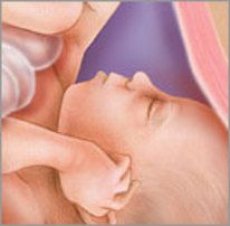Medical expert of the article
New publications
Pregnancy: 32 weeks
Last reviewed: 08.07.2025

All iLive content is medically reviewed or fact checked to ensure as much factual accuracy as possible.
We have strict sourcing guidelines and only link to reputable media sites, academic research institutions and, whenever possible, medically peer reviewed studies. Note that the numbers in parentheses ([1], [2], etc.) are clickable links to these studies.
If you feel that any of our content is inaccurate, out-of-date, or otherwise questionable, please select it and press Ctrl + Enter.

How the child grows:
Your baby now weighs 1.7 kg and is 42 cm long. You are gaining about 0.5 kg per week, and about half of that weight goes to the baby. She now has fingernails, toenails and real hair. Her skin is becoming soft and smooth as she develops fatty tissue.
Important: Each baby's development is unique. Our information is designed to give you a general idea of fetal development.
Changes in the expectant mother
With your baby's growing needs, your blood volume has increased by 40 to 50 percent since you started your pregnancy. Combined with your enlarged uterus, you may experience shortness of breath and heartburn. To reduce discomfort, try sleeping on a raised pillow and eating small, frequent meals.
If you have lower back pain, tell your doctor, as it may be a sign of preterm labor. Lower back pain is not always a symptom of preterm labor, but can be caused by the growing uterus and hormonal changes. The growing uterus shifts the center of gravity, stretching and weakening the abdominal muscles, and changes the position and pressure on the back. Hormonal changes during pregnancy contribute to weakening of joints and ligaments, which causes pain and discomfort.
Who can be present at childbirth?
Childbirth is a very intimate process and the decision about who will be present is entirely up to you. When making your decision, consider the following factors:
- There is no one right answer. In a recent BabyCenter survey, 44 percent of pregnant women said they preferred to have no one in the delivery room except their partner and medical staff, while 37 percent said they wanted a family member; 16 percent said they wanted a friend, and only 3 percent of respondents insisted on having a coach or birth attendant.
- Some husbands or partners feel embarrassed or unwilling to be present during the birth. Take into account the wishes of your loved ones.
- You may be under pressure from your mother or mother-in-law to be present at the birth of your grandchildren, regardless of your wishes. In any case, remember that the birth process is an intimate one, and you decide for yourself who should be present.
- In fact, some studies show that women who have supportive loved ones during labor have faster labors and are less likely to develop complications.
This week's activity: Your friends and relatives will want to help you as much as possible during the birth of your baby. Make a list of things to do and who is willing to help to avoid chaos in the future.


 [
[